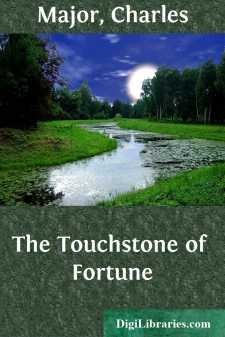Categories
- Antiques & Collectibles 13
- Architecture 36
- Art 48
- Bibles 22
- Biography & Autobiography 813
- Body, Mind & Spirit 142
- Business & Economics 28
- Children's Books 17
- Children's Fiction 14
- Computers 4
- Cooking 94
- Crafts & Hobbies 4
- Drama 346
- Education 46
- Family & Relationships 57
- Fiction 11829
- Games 19
- Gardening 17
- Health & Fitness 34
- History 1377
- House & Home 1
- Humor 147
- Juvenile Fiction 1873
- Juvenile Nonfiction 202
- Language Arts & Disciplines 88
- Law 16
- Literary Collections 686
- Literary Criticism 179
- Mathematics 13
- Medical 41
- Music 40
- Nature 179
- Non-Classifiable 1768
- Performing Arts 7
- Periodicals 1453
- Philosophy 64
- Photography 2
- Poetry 896
- Political Science 203
- Psychology 42
- Reference 154
- Religion 513
- Science 126
- Self-Help 84
- Social Science 81
- Sports & Recreation 34
- Study Aids 3
- Technology & Engineering 59
- Transportation 23
- Travel 463
- True Crime 29
When Knighthood Was in Flower or, the Love Story of Charles Brandon and Mary Tudor the King's Sister, and Happening in the Reign of His August Majesty King Henry the Eighth
by: Charles Major
Categories:
Description:
Excerpt
CHAPTER I
It sometimes happens, Sir Edwin says, that when a woman will she won't, and when she won't she will; but usually in the end the adage holds good. That sentence may not be luminous with meaning, but I will give you an illustration.
I think it was in the spring of 1509, at any rate soon after the death of the "Modern Solomon," as Queen Catherine called her old father-in-law, the late King Henry VII, that his august majesty Henry VIII, "The Vndubitate Flower and very Heire of both the sayd Linages," came to the throne of England, and tendered me the honorable position of Master of the Dance at his sumptuous court.
As to "worldly goods," as some of the new religionists call wealth, I was very comfortably off; having inherited from my father, one of the counselors of Henry VII, a very competent fortune indeed. How my worthy father contrived to save from the greedy hand of that rich old miser so great a fortune, I am sure I can not tell. He was the only man of my knowledge who did it; for the old king had a reach as long as the kingdom, and, upon one pretext or another, appropriated to himself everything on which he could lay his hands. My father, however, was himself pretty shrewd in money matters, having inherited along with his fortune a rare knack at keeping it. His father was a goldsmith in the time of King Edward, and enjoyed the marked favor of that puissant prince.
Being thus in a position of affluence, I cared nothing for the fact that little or no emolument went with the office; it was the honor which delighted me. Besides, I was thereby an inmate of the king's palace, and brought into intimate relations with the court, and above all, with the finest ladies of the land—the best company a man can keep, since it ennobles his mind with better thoughts, purifies his heart with cleaner motives, and makes him gentle without detracting from his strength. It was an office any lord of the kingdom might have been proud to hold.
Now, some four or five years after my induction into this honorable office, there came to court news of a terrible duel fought down in Suffolk, out of which only one of the four combatants had come alive—two, rather, but one of them in a condition worse than death. The first survivor was a son of Sir William Brandon, and the second was a man called Sir Adam Judson. The story went that young Brandon and his elder brother, both just home from the continental wars, had met Judson at an Ipswich inn, where there had been considerable gambling among them. Judson had won from the brothers a large sum of money which they had brought home; for, notwithstanding their youth, the elder being but twenty-six and the younger about twenty-four years of age, they had gained great honor and considerable profit in wars, especially the younger, whose name was Charles.
It is a little hard to fight for money and then to lose it by a single spot upon the die, but such is the fate of him who plays, and a philosopher will swallow his ill luck and take to fighting for more....





